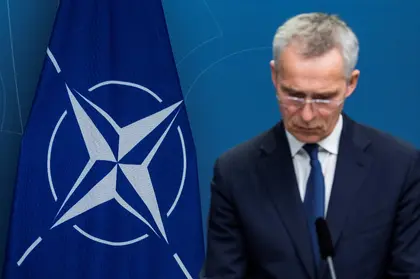With Ukraine’s counter-offensive against Russian troops ramping up, Western allies face the challenge of replacing lost equipment and supplying the vast quantities of ammunition Kyiv needs -- without undermining their own defence capabilities.
Russia claims to have destroyed up to 30 percent of NATO-supplied weaponry in recent days, showing off videos of destroyed or abandoned German tanks and US armoured vehicles.
JOIN US ON TELEGRAM
Follow our coverage of the war on the @Kyivpost_official.
Analysts say Moscow’s figures are inflated, although independent verification is impossible.
But there is no doubt about the fact that Russia’s extensive minefields, large numbers of loitering munitions and intense artillery bombardments will take a toll on Ukraine’s forces as they try to pierce defensive lines.
Most analysts believe Kyiv has yet to commit its full strength to the assault, remaining in a phase of probing enemy positions.
“The fighting will likely get tougher,” wrote Jack Watling of Britain’s RUSI defence think-tank in an analyst note.
“For Ukraine’s international partners, the summer is likely to be deeply uncomfortable. Losses will mount and success will take time.”
Already, open-source intelligence website Oryx, which tallies equipment losses based on battlefield imagery, has counted four lost German Leopard tanks, two French AMX-10 RC light tanks and more than 70 infantry fighting vehicles.

Moscow Claims AFU’s Best Troops ‘Ground Down’, Kyiv’s 2025 War Plans ‘Derailed’
“It is vital... that there is no diminution in the strengthening of the training programmes allowing Ukraine to continue to generate combat units, or the mobilisation of defence industry to put supply to the Ukrainian military on a sustainable basis,” Watling said.
Some European countries have already flagged up limits to the speed at which they can keep up or increase deliveries.
“We will not be able to replace every tank that is now out of action,” German Defence Minister Boris Pistorius said on Monday.
Members of the US-led Ukraine Defense Contact Group met in Brussels Thursday to talk supplies for Kyiv, ahead of a NATO defence ministers’ meeting.
- ‘Multi-year programme’ -
“We’re looking at how we can keep up our aid to Ukraine while preserving our own defence capability,” one European government source told AFP on condition of anonymity.
On Tuesday, the US announced an additional $325 million of aid including armoured vehicles and air defence systems.
Further pledges could come at NATO’s summit in Lithuanian capital Vilnius on July 11-12.
“There is an urgent need to support” Ukraine during the summer offensive, NATO Secretary-General Jens Stoltenberg told broadcaster France 5.
“Most likely, (Vilnius) Summit will make a pledge for a multi-year program to provide support to Ukraine,” he added.
The European Commission said in early May it would spend 500 million euros ($545 million) ramping up EU production of artillery shells to one million per year.
At German arms maker Rheinmetall, “we are pulling out all the stops when it comes to production of ammunition for tanks,” Harald Weismueller, head of a factory in Unterluess, Lower Saxony state, told AFP recently.
Europe’s top producer of shells for tanks and artillery is working Germany’s biggest arms factory hard, aiming to send armoured vehicles and their ammunition to the front in Ukraine as well as rebuilding NATO stocks.
Unterluess’ top product is 120mm shells for the main gun of the Leopard 2 main battle tank, which Berlin agreed early this year to supply to Kyiv under intense pressure from allies.
Output is now running at a rate of 240,000 annually, up from 60,000 before Russia’s invasion.
NATO’s other major task is to maintain Western equipment that Ukraine has put through its paces on the front line.
Weapons have to be swiftly brought up to standard and sent back out to the front.
Ukrainian media reports suggest Berlin and Warsaw will soon reach a deal for a Poland-based maintenance centre for Leopard tanks damaged in fighting across the border.
Such facilities already exist in Slovakia and Romania.
You can also highlight the text and press Ctrl + Enter






